
Take a look at our latest sustainability report
25 May 2022Today sees the publication of our Sustainability Report 2020/21, which highlights our progress in working towards a better future for people, places and communities.
We were proud to sponsor the British Council for Offices (BCO) Annual Conference, where we offered valuable thought leadership on sustainability.
If you were unable to attend the session, we invite you to read the key points from Simon's presentation below and download our Sustainability Report.
As I am sure we are all aware - there is no action without consequence, and there is no doubt that the built environment has had a significant effect on the natural one and society as a whole.
When I first started my career, 20 years ago, we didn’t talk about Environmental, Social, and Governance (ESG) or sustainability. It was Environmental Management and the focus was legal compliance.
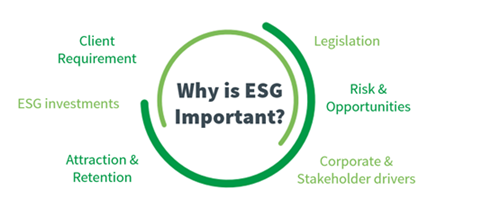 Today we talk about ESG in the boardroom and have Sustainability Managers, specialists in carbon, social value and circular economy in our business.
Today we talk about ESG in the boardroom and have Sustainability Managers, specialists in carbon, social value and circular economy in our business.
Firstly, our clients are asking for it:
For example, if you are building a speculative office block which is not Net Zero Carbon (NZC), particularly in operation, then you may struggle to let it in the future or, if you plan on operating it yourself, you may fall foul of future carbon taxation. That asset will be a growing liability.
Legislation is growing in this space. Therefore, as a business, you need to make sure you are able to comply.
It is also increasingly becoming an element of attraction and retention of employees.
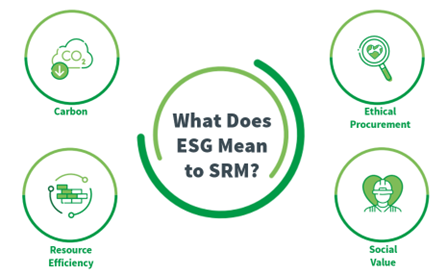
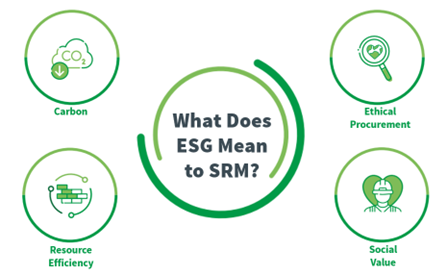 Our response is shaped by our Company Sustainability Strategy and the desire to have every single one of our employees working to deliver our sustainability objectives.
Our response is shaped by our Company Sustainability Strategy and the desire to have every single one of our employees working to deliver our sustainability objectives.
This strategy ensures we do the right thing as a business, but also to make sure we can deliver for our clients.
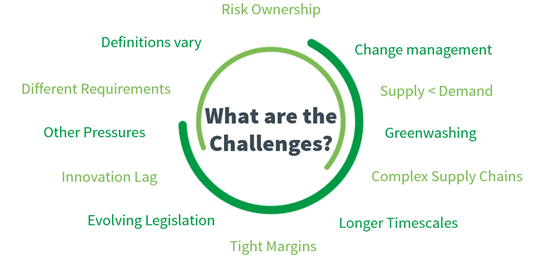
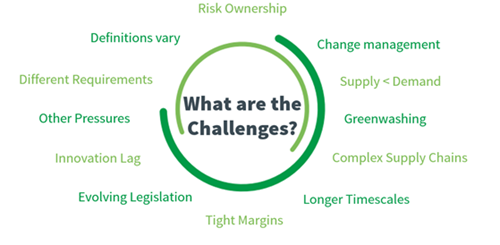
To deliver this agenda, we need systemic change in how we specify, design, procure and deliver the built environment where the assets we deliver work with our natural systems and are a vehicle for improving our society.
Change doesn’t come easy. In construction we’ve been using the same materials and installing them in roughly the same way for hundreds of years. This gives us confidence on important things like quality, cost and programme.
But we are going to have to adapt:
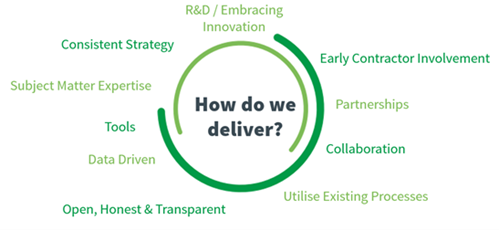 We are also looking at the forms of contract we enter into and the types of project we do.
We are also looking at the forms of contract we enter into and the types of project we do.
The projects where we deliver more in the ESG field are when we get involved early in the process. And that is a leap of faith for a client to get a contractor involved early. But when we are, we have the ability to forge a relationship and trust. We work together, all pulling in the same direction.
Early contractor involvement (ECI) and frameworks also allow us to engage our supply chain earlier and overcome some of the challenges with lead time and coordination of things like MMC (Modern Methods of Construction) or DfMA (Design for Manufacture and Assembly) or innovative materials.
This all means that we’re able to understand risk and opportunities and take our fair equitable share. Our work on our Broadgate Framework with British Land is a real showcase of how framework thinking and ECI can maximise ESG performance.
This is the age of collaboration and partnerships, the scale of change and stakes, if we get it wrong, are too big. No one has all the answers and we all need to work together.
Today sees the publication of our Sustainability Report 2020/21, which highlights our progress in working towards a better future for people, places and communities.
Company Carbon Manager, Simon Leek, shares insight into how the demolition and enabling works at 1 Broadgate in London have adopted circular economy principles.
Field trials between Sir Robert McAlpine and temporary power company Aggreko have unearthed some promising results around decarbonisation as the construction industry approaches a ban on red diesel in April.

